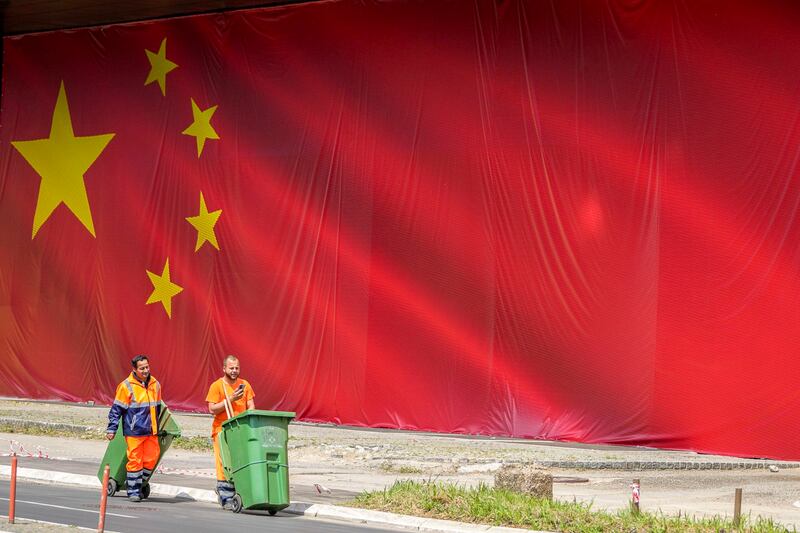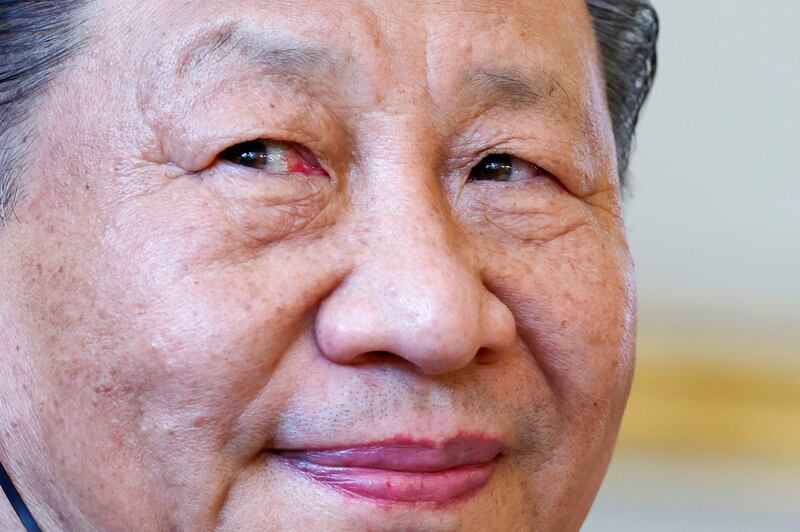Xi Jinping’s tour of potential sympathizers in Europe took a gloomy turn Tuesday, as the Chinese president headed to Serbia with an apparent warning to the United States on the 25th anniversary of the NATO bombing of Beijing’s Embassy in its capital, Belgrade.
"Twenty-five years ago today, NATO flagrantly bombed the Chinese Embassy in Yugoslavia, killing three Chinese journalists," Xi wrote in the Serbian daily Politika prior to his arrival on a flight from Paris.
“This we should never forget,” Xi wrote. “The Chinese people cherish peace, but we will never allow such tragic history to repeat itself.”
Three Chinese journalists were killed and 20 Chinese nationals were wounded in the May 7, 1999, attack during the Kosovo War, which prompted outrage in China and an apology from then-U.S. President Bill Clinton.

The embassy was hit during a campaign against the then Federal Republic of Yugoslavia to force late Serbian strongman Slobodan Milosevic to end a crackdown on ethnic Albanians in Kosovo.
The United States blamed the bombing on a CIA mapping error.
Xi’s warnings about the “flagrant” NATO aggression come as Beijing steadfastly stands by Moscow amid its invasion of Ukraine.
China has repeatedly amplified Russian claims its invasion of Ukraine was forced by the expansion into Eastern Europe of NATO, which the United States and other NATO members insist is a defensive pact but Moscow slams as a threat to its “legitimate security interests.”
European tour
Xi’s visit to Serbia is the second stop of three in Europe – after France and before Hungary – as Beijing tries to cleave off the continent from decades of geopolitical alliance with Washington.
In Politika, Xi also hailed the "iron-clad friendship" between China and Serbia, which he said was "forged with the blood of our compatriots."
China has poured billions into Serbia and neighboring Balkan countries – in particular into mining and manufacturing sectors – and last year Beijing and EU-applicant Belgrade signed a free trade agreement.
On Monday in Paris, Xi met French President Emmanuel Macron, who has publicly promoted the idea of France and the European Union pursuing geopolitical "strategic autonomy" from the United States.
Last year, speaking about a potential dispute over Taiwan between Beijing and Washington, Macron said Europe should not allow itself to become a U.S. " vassal" and be drawn into any conflict.

In Paris, crowds of protesters turned out on the streets to greet Xi, wave flags and express their anger over China’s persecution of Tibetans and Uyghurs as well as its clampdown on freedoms in Hong Kong.
Xi next travels to Hungary, whose authoritarian Prime Minister Viktor Orban has been a thorn in the side of NATO as it attempts to support Ukraine’s defense against the invasion by Russian forces.
Unlike Serbia, Hungary is also a member of the European Union and NATO, and has blocked several EU resolutions critical of China in recent years, including about Beijing's crackdown in Hong Kong.
Edited by Alex Willemyns and Malcolm Foster.
